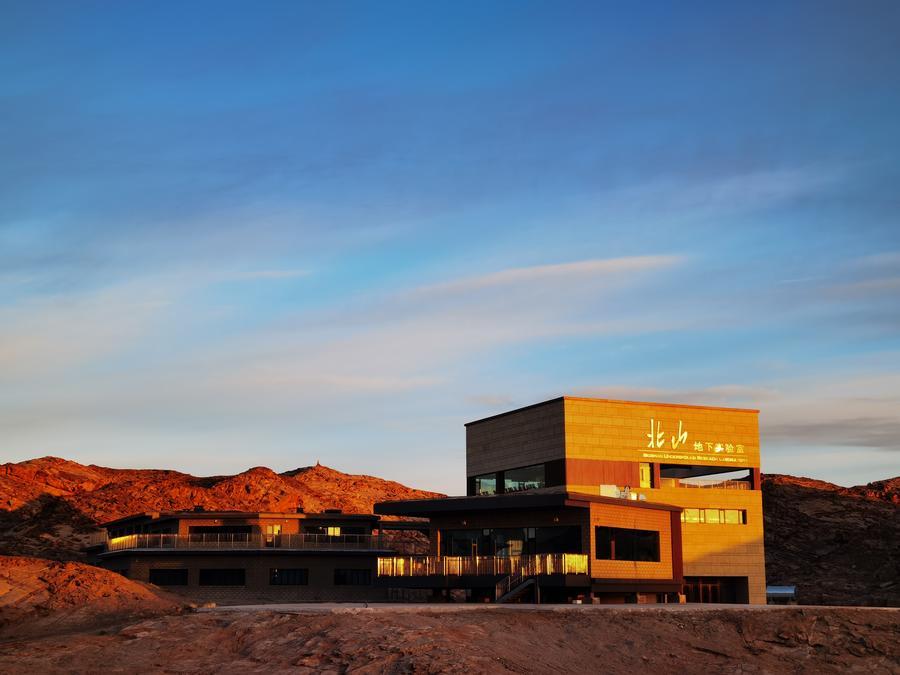еҸӮиҖғж¶ҲжҒҜ

China opens 12 nuclear research facilities to global scientists
This file photo taken on Dec. 5, 2021 shows a part
of the Beishan Underground Research Laboratory in northwest China's Gansu Province. [Photo/Xinhua]
China will open 12 nuclear research facilities and testing platforms to international scientists and institutions to enhance global cooperation, a senior Chinese official said in Vienna on Monday.
These include the China Advanced Research Reactor, the new-generation tokamak device Huanliu-3, and the Beishan Underground Research Laboratory, Liu Jing, vice chairman of the China Atomic Energy Authority (CAEA), said at a meeting on the sidelines of the International Atomic Energy Agency's (IAEA) annual general conference.
The facilities span areas such as basic nuclear research, isotope production, nuclear environment simulation, equipment testing, and radioactive waste treatment and disposal.
Monday's meeting, themed "Share for Development," was organized by the CAEA to promote international cooperation in nuclear technology research and development, as China marks the 40th anniversary of its accession to the IAEA.
Yu Jianfeng, chairman of China National Nuclear Corporation, said at the event that the company aims to deepen cooperation with the IAEA and expand international collaboration. He expressed hope that opening China's nuclear research facilities will contribute to advancing nuclear technology globally.
IAEA's Deputy Director General Mikhail Chudakov commended China's remarkable achievements in nuclear energy development and highlighted the long-standing, fruitful relationship between the IAEA and the CAEA.
Welcoming China's decision to open up more of its nuclear research and development facilities, Chudakov said the move will further strengthen the agency's technical capacity to support its member states.
On Monday evening, the CAEA and China's permanent mission to the United Nations (UN) and other international organizations in Vienna jointly held a reception at the UN headquarters in Vienna to celebrate the 40th anniversary of China's accession to the IAEA. More than 200 participants, including IAEA representatives and foreign envoys to Vienna, attended the event.
Li Song, China's permanent representative to the UN and other international organizations in Vienna, said at the reception that China and the IAEA have expanded practical cooperation and jointly promoted the development of nuclear energy over the past 40 years.
China, he said, will continue to strengthen collaboration with the IAEA and its member states to address emerging challenges in international security, safeguard the global non-proliferation regime, and promote the use of nuclear energy and technology for the benefit of the Global South.
At the reception, Liu, Li and IAEA Director General Rafael Grossi jointly unveiled a bronze statue of Qian Sanqiang, a renowned Chinese nuclear physicist and one of the founders of China's nuclear industry.
The statue, donated by China, will be permanently displayed at the IAEA headquarters, alongside sculptures of Polish-French physicist Marie Curie and other prominent figures who have made significant contributions to the peaceful use of nuclear energy.














